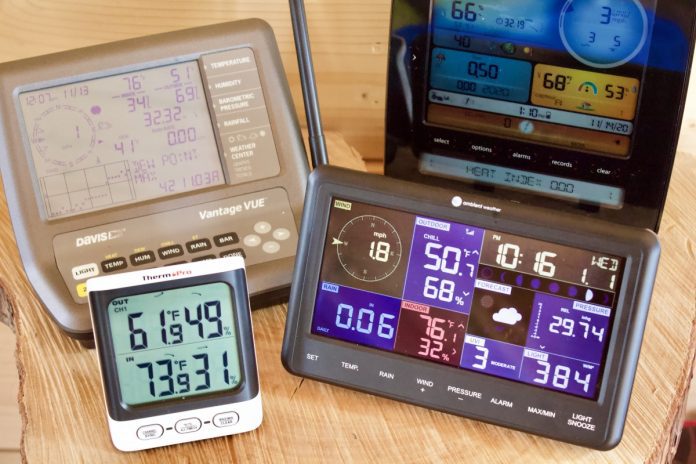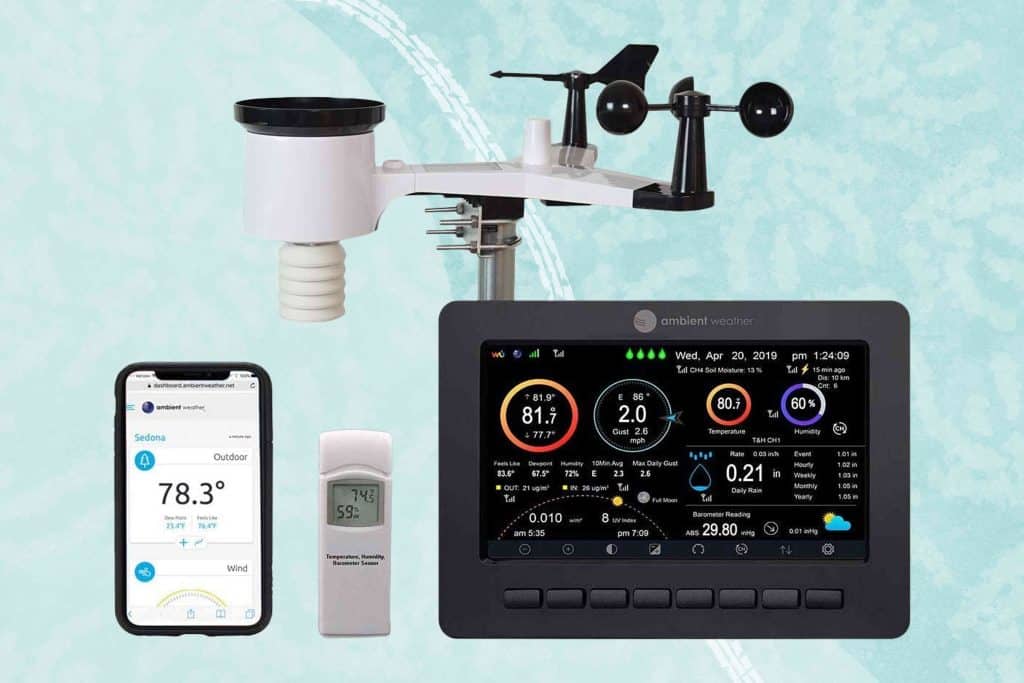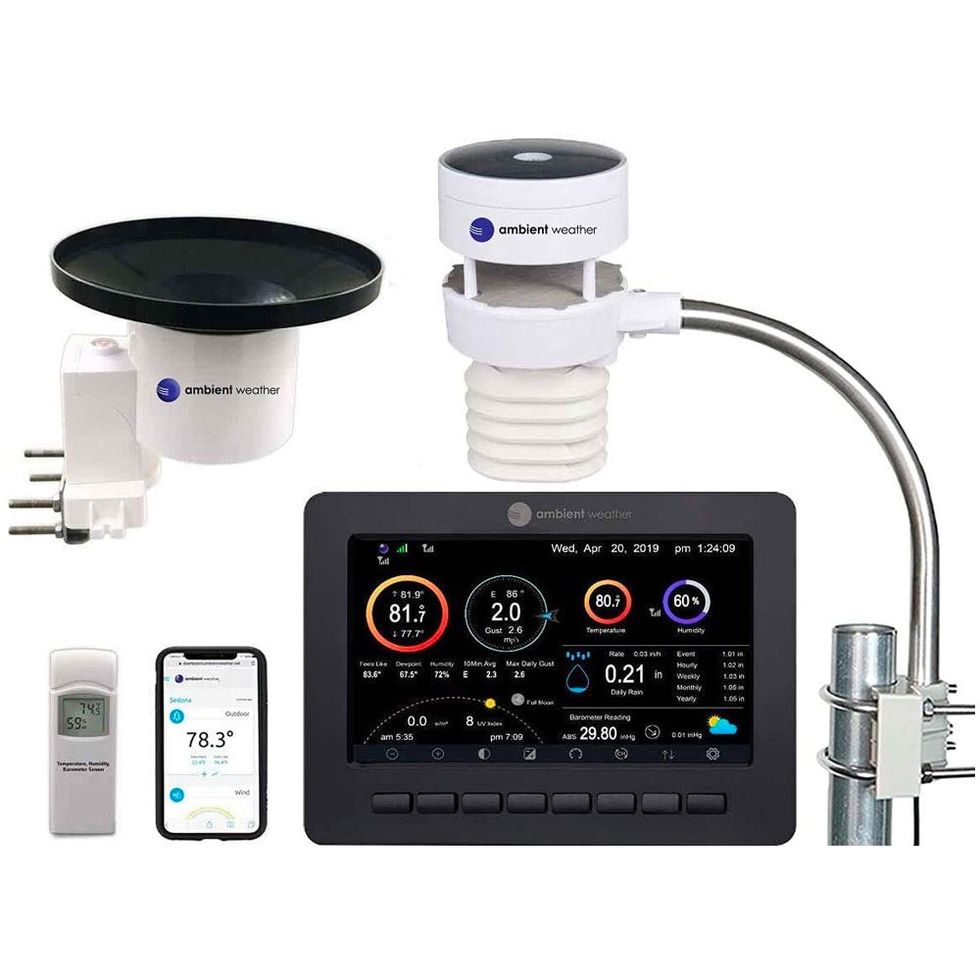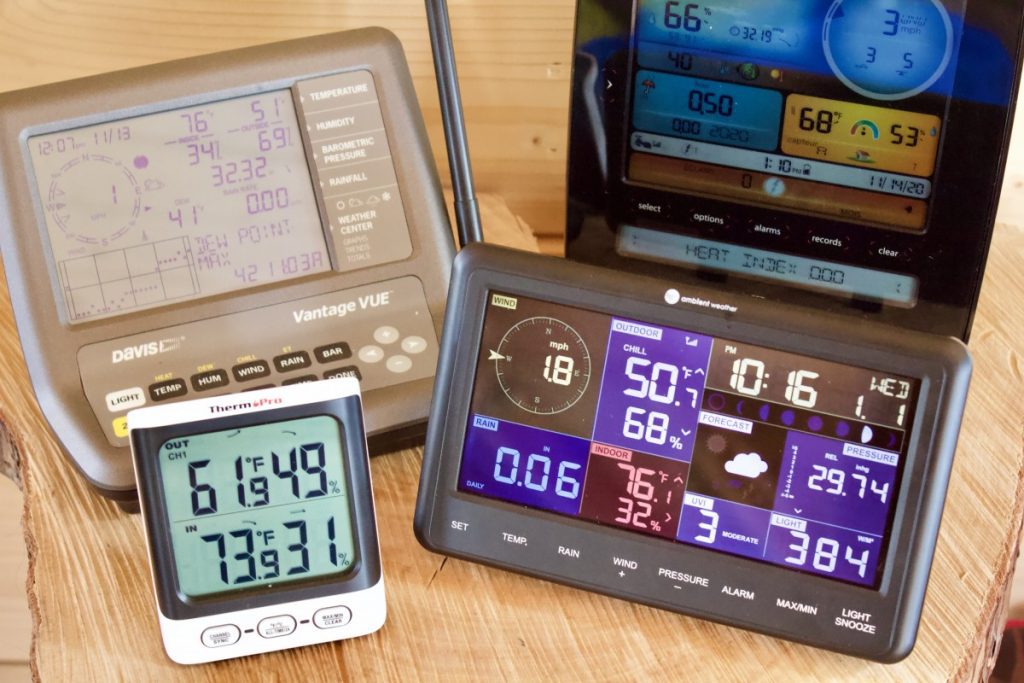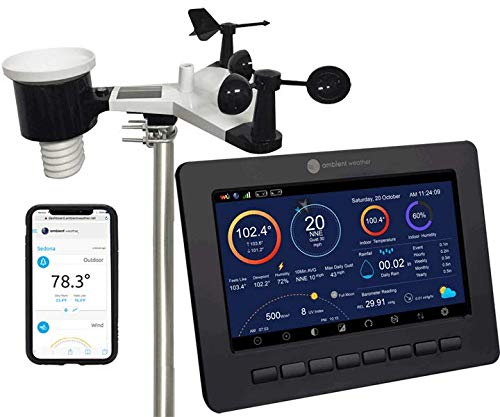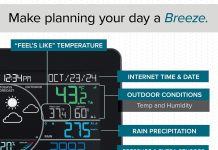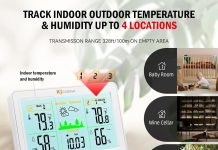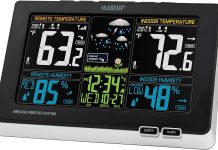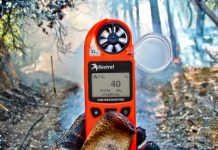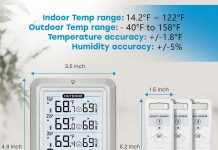Have you ever wondered how accurate your home weather station is compared to the professional stations? Well, we’ve got the answer for you! In this article, we’ll explore the accuracy of home weather stations in comparison to their professional counterparts. Whether you’re a weather enthusiast or rely on accurate weather information for outdoor activities, understanding the accuracy of these stations is essential. So buckle up and prepare to be amazed by the accuracy of these innovative devices!
This image is property of www.thespruce.com.
Review contents
Factors Affecting Accuracy of Weather Stations
Quality of Sensors
The quality of sensors used in weather stations plays a crucial role in determining their accuracy. Professional weather stations often use high-quality, precision sensors that have been designed and tested specifically for meteorological measurements. On the other hand, home weather stations may utilize less expensive sensors that may not be as accurate or reliable. It is important to invest in a weather station that has sensors with a high level of accuracy in order to get reliable and trustworthy weather data.
Calibration
Another factor that affects the accuracy of weather stations is the calibration process. Weather sensors need to be regularly calibrated to ensure their measurements are accurate and consistent over time. Professional weather stations often have dedicated facilities and experts who calibrate their sensors regularly. However, home weather stations may rely on the user to perform calibration, which can be challenging without proper knowledge and equipment. It is crucial to calibrate the sensors of a home weather station correctly to maintain its accuracy.
Location
The location of a weather station can significantly affect its accuracy. Professional weather stations are typically installed in areas specifically chosen to minimize the impact of external factors such as nearby buildings, vegetation, or other environmental variables that may influence weather measurements. Home weather stations, on the other hand, are often placed in residential areas where they are more likely to be affected by the surrounding structures and landscape. The accuracy of a home weather station can be improved by selecting an optimal location that provides a clear and unobstructed view of the sky.
Maintenance
Regular maintenance is essential to keep weather stations functioning accurately. Professional weather stations have dedicated staff who regularly inspect and maintain the equipment to ensure its proper operation. In contrast, home weather stations rely on the users to perform maintenance tasks such as cleaning the sensors, replacing batteries, and checking for any damage or wear. Neglecting routine maintenance can lead to inaccurate measurements and reduced reliability of a home weather station.
Comparison of Home Weather Stations and Professional Stations
Data Collection
Professional weather stations are equipped with a wide array of sensors that collect data on various atmospheric variables such as temperature, humidity, pressure, wind speed, and precipitation. These stations often use advanced measurement techniques and redundancy in their sensors to ensure that accurate and reliable data is collected. Home weather stations, on the other hand, may have a limited number of sensors and may not measure all the variables that professional stations do. While home weather stations can still provide valuable data, their scope and accuracy may be more limited compared to professional stations.
Data Analysis
Professional weather stations have sophisticated data analysis systems in place to process and analyze the collected data. These systems employ advanced algorithms and models to derive meaningful insights and patterns from the data. Home weather stations, on the other hand, often rely on basic data analysis methods that may not be as robust or accurate. This can affect the accuracy of weather predictions and the ability to identify long-term trends or extreme weather events accurately.
Weather Prediction
Professional weather stations are designed to provide accurate and reliable weather predictions on a local, regional, and global scale. They utilize complex mathematical models, historical data, and real-time observations to generate forecasts that are constantly updated. Home weather stations, while they can provide short-term forecasts based on their own data, may lack the sophisticated models and access to a vast amount of historical and real-time data that professional stations have. This can result in lower accuracy and reliability in weather predictions made by home weather stations.
Long-Term Trends
Professional weather stations are crucial for monitoring climate change and detecting long-term trends in weather patterns. Their extensive historical data and professional analysis enable scientists to study climate fluctuations over long periods. Home weather stations, however, may not have the capability to capture and analyze data on such a large scale. Therefore, while they can provide insights into short-term weather patterns, they may not be as effective in identifying and understanding long-term climate trends compared to professional stations.
Extreme Weather Events
Professional weather stations excel in capturing and monitoring extreme weather events such as hurricanes, tornadoes, or heavy rainfall. These stations are equipped with specialized sensors and systems that can accurately measure and record extreme weather phenomena. Home weather stations, while they can provide information on extreme weather events in their immediate vicinity, may not have the same level of accuracy and coverage. Therefore, relying solely on a home weather station during extreme weather events may not provide the comprehensive and accurate information needed to make critical decisions.
This image is property of hips.hearstapps.com.
Case Studies
Study 1: Accuracy of Home Weather Stations
In a study conducted to assess the accuracy of home weather stations, a sample of various models was compared with professional weather stations. The study found that while home weather stations can provide reasonably accurate measurements for some variables such as temperature and humidity, they may have less accuracy in measuring variables like wind speed and precipitation. The study emphasized the importance of calibration and proper placement of home weather stations to improve their accuracy. Overall, home weather stations can be a reliable source of weather information for personal use and general awareness, but their accuracy may not match that of professional weather stations.
Study 2: Comparison with Professional Stations
Another study compared home weather stations with professional stations in terms of accuracy and data reliability. The study found that the accuracy of home weather stations varied depending on the quality of the sensors, calibration practices, and the skill level of the users. While some home weather stations performed relatively well, others showed significant deviations from the measurements taken by professional stations. The study concluded that home weather stations can provide valuable data for local weather conditions but cautioned against relying solely on them for critical decision-making or scientific analysis.
Limitations of Home Weather Stations
Limited Sensor Range
Home weather stations typically have a limited range for their sensors, which can restrict their ability to capture accurate data beyond a specific area. To obtain a comprehensive view of the weather, multiple home weather stations would need to be set up in different locations, which may not always be feasible for individuals or small communities. Professional weather stations, on the other hand, are strategically placed to cover larger areas and provide more comprehensive data.
Influence of Local Weather Conditions
Home weather stations are highly influenced by the immediate weather conditions in their vicinity. Factors such as buildings, vegetation, and other local environmental variables can affect the accuracy of the measurements. For example, a home weather station placed in a sheltered backyard may not accurately measure wind speed or direction compared to a professional station placed in a more exposed location. It is important to consider the local factors that may impact the accuracy of a home weather station’s measurements.
Lack of Quality Control
Professional weather stations are subject to rigorous quality control measures to ensure the accuracy and reliability of their data. Home weather stations, on the other hand, do not undergo the same level of scrutiny. The accuracy of a home weather station relies on the user’s diligence in calibration, maintenance, and data interpretation. Without proper quality control, there is a risk of inaccurate data being collected and shared. It is important for users of home weather stations to be aware of this limitation and take appropriate measures to ensure the accuracy of their data.
This image is property of w2f2z6e6.stackpathcdn.com.
Advantages of Home Weather Stations
Real-Time Data
One of the significant advantages of home weather stations is the ability to access real-time weather data specific to the location where the station is installed. This allows users to monitor and track weather conditions in their immediate surroundings accurately. Real-time data can be particularly valuable for outdoor activities, gardening, or general awareness about the local weather conditions.
Personalized Weather Information
Home weather stations enable users to customize the weather information they receive based on their specific needs and interests. Users can focus on variables that matter most to them, such as temperature, humidity, or wind speed. This personalized approach allows individuals to have a more tailored understanding of the weather conditions that directly impact their lives, enhancing their overall weather experience.
Education and Awareness
By owning a home weather station, individuals have the opportunity to learn more about meteorology and weather patterns. They can actively engage with the data collected by their stations, observing correlations between different variables and analyzing the impact of various weather conditions. Home weather stations can be great educational tools for children and adults alike, fostering a deeper understanding and appreciation of the weather.
Factors to Consider when Choosing a Home Weather Station
Sensor Accuracy and Quality
When selecting a home weather station, it is essential to consider the accuracy and quality of its sensors. Look for stations that utilize high-quality sensors known for their accuracy and reliability. Reading customer reviews and consulting experts can provide valuable insights into the performance of different sensor brands.
Connectivity and Compatibility
Check if the home weather station offers connectivity options such as Wi-Fi or Bluetooth, which can enable easy data transfer and access from various devices. Also, consider the compatibility of the station with different operating systems or weather apps to ensure seamless integration and data-sharing capabilities.
Data Visualization and Accessibility
Evaluate the data visualization capabilities of the home weather station. Look for stations that offer user-friendly interfaces and clear visual representations of the collected data. The accessibility of the data through mobile apps or online platforms is also an essential factor to consider, as it allows users to access their weather information remotely.
Community and Data Sharing
Consider whether the home weather station has a supportive and active community of users. A strong user community can provide valuable insights, troubleshooting assistance, and opportunities for data sharing. Engaging with other users can enhance the overall experience of owning a home weather station and allow for collaborative data analysis.
This image is property of Amazon.com.
Expert Recommendations for Home Weather Station Users
Regular Calibration and Maintenance
To ensure accurate measurements, it is crucial to regularly calibrate the sensors of a home weather station. Follow the manufacturer’s instructions for calibration procedures and frequency. Additionally, perform routine maintenance tasks such as cleaning the sensors, inspecting cables, and replacing batteries to maximize the performance and accuracy of the station.
Cross-Verification with Official Data
While home weather stations can provide valuable insights, they may not always match the measurements obtained from official weather stations. For critical decision-making or scientific analysis, it is recommended to cross-verify the data obtained from a home weather station with official sources. Comparing the measurements can help identify any discrepancies and ensure data accuracy.
Understanding Limitations and Interpretation of Data
It is essential for users of home weather stations to understand the limitations of their equipment and the interpretation of the collected data. Recognize that home weather stations may have variances in accuracy compared to professional stations. Consider the local factors that may influence measurements, and use the data as a general indication of weather patterns rather than relying solely on it for critical decision-making.
Conclusion
Home weather stations offer a convenient and personalized way to access weather information specific to one’s location. While they may not match the accuracy and capabilities of professional weather stations, they can still provide reliable data for personal use, education, and general awareness. Factors such as the quality of sensors, calibration, location, and maintenance significantly impact the accuracy of home weather stations. Users must weigh the advantages and limitations of home weather stations and consider their specific needs when choosing a weather station. By following expert recommendations and being aware of the limitations, users can maximize the accuracy and usefulness of their home weather stations.
This image is property of Amazon.com.

